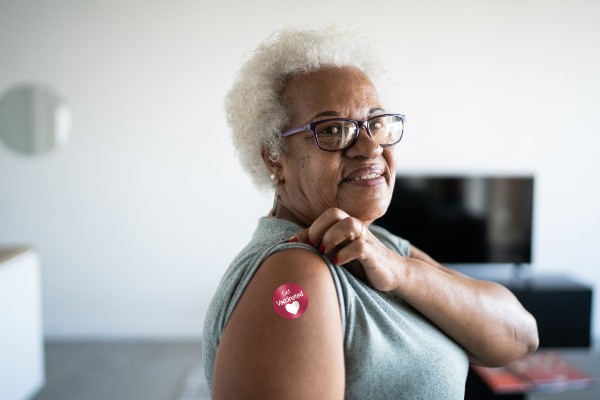In December 2020, scientists discovered a new variant of the coronavirus that causes COVID-19. While this seems alarming, it’s not at all unusual for viruses to mutate. Let’s explore how that happens and what it means in terms of controlling its spread.
How Viruses Mutate
While the first encounter we had with COVID came from China, there’s evidence that a new strain has appeared in the London area. New variants of viruses tend to pop up in geographically distant areas, so this is not unusual. In fact, new strains of COVID are evolving all the time, but most of them don’t take hold and soon disappear.
In fact, it’s perfectly normal—and expected—for viruses to mutate over time. Their genetic material changes by chance as they reproduce, and the more successful variations go on to spread.
It’s similar to the flu and many other viruses. In fact, one of the reasons people are encouraged to get an influenza shot each year is because the virus will have mutated since the last flu season.
Furthermore, the more people who get the COVID virus, the greater the odds that it will create multiple mutations of itself, simply because it has more opportunity to do so.
What’s Different
Scientists already know that what genetic changes are present in the new strain vs. the old one, but they aren’t yet sure how that will affect it. Johns Hopkins Medicine suggests that it may be more contagious than the previous strain.
Also, while children now seem to be getting COVID more often, it’s too soon to know whether that’s primarily because of the new variant, or if they are more frequently being exposed to and infected with the old one—or some combination of the two. A big variable is people’s habits, which can have a significant impact on the spread of the virus, regardless of the strain.
What to Do
Hopkins says that the new strain doesn’t mean you should do anything differently. Continue to wear a mask, avoid crowds, social distance and wash your hands. At this time, the evidence indicates that the existing vaccine will protect against the new variant of COVID. Biologically, the new strain and the old one appear to be similar enough that the vaccine will prevent both.
However, scientists aren’t complacent. They are carefully monitoring this new variant of the virus and keeping an eye out for others. If and when it becomes necessary to modify the vaccine, they are ready.
Resources:
Learn more about Rebekah Sensenig, D.O.
Navigating COVID-19



